Analyzing The Social Contract - Rousseau's Political Philosophy
Jean-Jacques Rousseau's Social Contract is not just a book; it's a revolutionary manifesto that challenges the very foundations of political thought. Imagine a world where the voice of the people reigns supreme, where individual desires harmonize with the greater good of society. Rousseau invites us to ponder the essence of freedom, governance, and the intricate dance between the individual and the collective. In this article, we will delve into the key concepts of Rousseau's Social Contract, examining its implications for political philosophy, individual freedom, and the collective good within society.
To truly grasp the significance of Rousseau's work, we must first step into the historical landscape of the 18th century. This was a time when the Enlightenment was in full swing, and thinkers were challenging traditional authority and advocating for reason, science, and individual rights. Rousseau's ideas emerged as a response to the rampant inequality and the oppressive governance structures of his time. The French Revolution was just around the corner, and Rousseau's thoughts on democracy and social justice were bubbling beneath the surface, ready to ignite a change. He questioned the legitimacy of monarchies and the social hierarchies that defined society, advocating instead for a system where the people were sovereign. This historical backdrop is crucial as it sets the stage for understanding Rousseau's radical vision of a society governed by the general will.
At the heart of Rousseau's Social Contract are several fundamental ideas that challenge conventional notions of power and authority. Rousseau introduces us to the concept of the general will, a collective desire that transcends individual interests. He argues that true political authority comes from the consent of the governed, laying the groundwork for modern democratic thought. But what does this mean for individual freedom? Rousseau suggests that real freedom isn't about doing whatever one wants; instead, it’s about participating in the collective decision-making process. This balance between individual rights and societal obligations is what makes Rousseau's philosophy both profound and relevant today.
So, what exactly is the general will? Rousseau believed that it represents the collective interests of the people, a will that aims for the common good. It's like a symphony where each instrument contributes to a harmonious piece; when individuals come together, their collective desires should guide political decisions. However, this isn't just about majority rule; it’s about finding a consensus that serves everyone. Imagine a community meeting where every voice is heard, and decisions reflect the true needs of the populace. That’s the essence of the general will.
Rousseau makes a critical distinction between individual will and general will. The individual will is often driven by personal interests, which can lead to selfishness and division. In contrast, the general will seeks to unify and elevate the community as a whole. Think of it like a team sport: while players may have personal goals, the ultimate aim is to win as a team. Rousseau warns that when individual interests overshadow the general will, society risks falling into chaos and conflict.
The implications of Rousseau's notion of the general will are profound for democratic governance. He posits that a true democracy is one where the collective will of the people is reflected in political decisions. This means that governments should not cater to the interests of a privileged few but rather ensure that the voices of all citizens are considered. In Rousseau's vision, democracy is not merely a system of voting; it’s an ongoing dialogue where the general will is continually shaped and reshaped through civic engagement.
Rousseau's argument for popular sovereignty asserts that legitimate political authority arises from the consent of the governed. This principle is foundational to modern democratic systems, where the power of the government is derived from the people it serves. It’s a radical idea that flips the traditional power structure on its head. Instead of rulers imposing their will on the subjects, the subjects collectively determine the rules and norms of their society. This shift empowers individuals and reinforces the idea that every citizen has a stake in the political process.
When it comes to freedom, Rousseau offers a nuanced perspective. He argues that true freedom is not about isolation or the absence of constraints; rather, it is found in active participation in the collective decision-making process. It’s like being part of a vibrant community garden where everyone contributes and benefits from the shared labor. In this way, freedom is intertwined with responsibility. Individuals must recognize their obligations to one another to foster a society that respects both individual rights and collective well-being.
Rousseau distinguishes between negative freedom, which is the absence of constraints, and positive freedom, which is the ability to participate in shaping one's life and society. While negative freedom may sound appealing, Rousseau emphasizes that it can lead to isolation and disconnection. Positive freedom, on the other hand, empowers individuals to engage with their communities and influence the direction of their society. This concept highlights the importance of civic engagement and the role of citizens in a healthy democracy.
In Rousseau's framework, civil society plays a crucial role. It is the space where individuals come together to form a collective identity and pursue the common good. Think of civil society as the glue that holds communities together, fostering collaboration and mutual support. Through associations, clubs, and civic organizations, people can engage with one another, share ideas, and work towards common goals. This vibrant interaction is essential for nurturing a sense of belonging and ensuring that the general will is genuinely representative of the community.
Despite the profound impact of Rousseau's ideas, they have not gone unchallenged. Critics argue that his concepts may lead to practical difficulties and potential authoritarianism. The ideal of the general will, while noble, raises concerns about the suppression of minority opinions. Can the general will truly represent everyone? Or does it risk becoming a tool for majoritarian tyranny? These questions prompt ongoing debates about the applicability of Rousseau's philosophy in contemporary contexts.
Critics of Rousseau's general will argue that it can be easily manipulated. In democratic systems, the risk arises that the majority may impose its will on minority groups, effectively silencing dissenting voices. This raises an important question: how can we ensure that the general will remains a genuine reflection of the collective interest without trampling on individual rights? The challenge lies in finding a balance that honors both the majority and the minority, fostering an inclusive political environment.
Rousseau's ideas continue to resonate in contemporary discussions about democracy, social justice, and the balance between individual rights and collective responsibilities. As societies grapple with issues of inequality, representation, and civic engagement, Rousseau's philosophy offers valuable insights into the ongoing quest for a just and equitable society. His vision encourages us to rethink our political structures and strive for a democracy that truly reflects the will of the people.
- What is the main idea of Rousseau's Social Contract?
Rousseau's Social Contract argues for a political system where the general will of the people guides governance, emphasizing the importance of collective decision-making for the common good. - How does Rousseau define freedom?
Rousseau defines true freedom as active participation in the collective decision-making process, balancing individual rights with societal obligations. - What are the critiques of Rousseau's philosophy?
Critics argue that Rousseau's ideas can lead to authoritarianism and that the concept of the general will may suppress minority opinions in democratic systems.
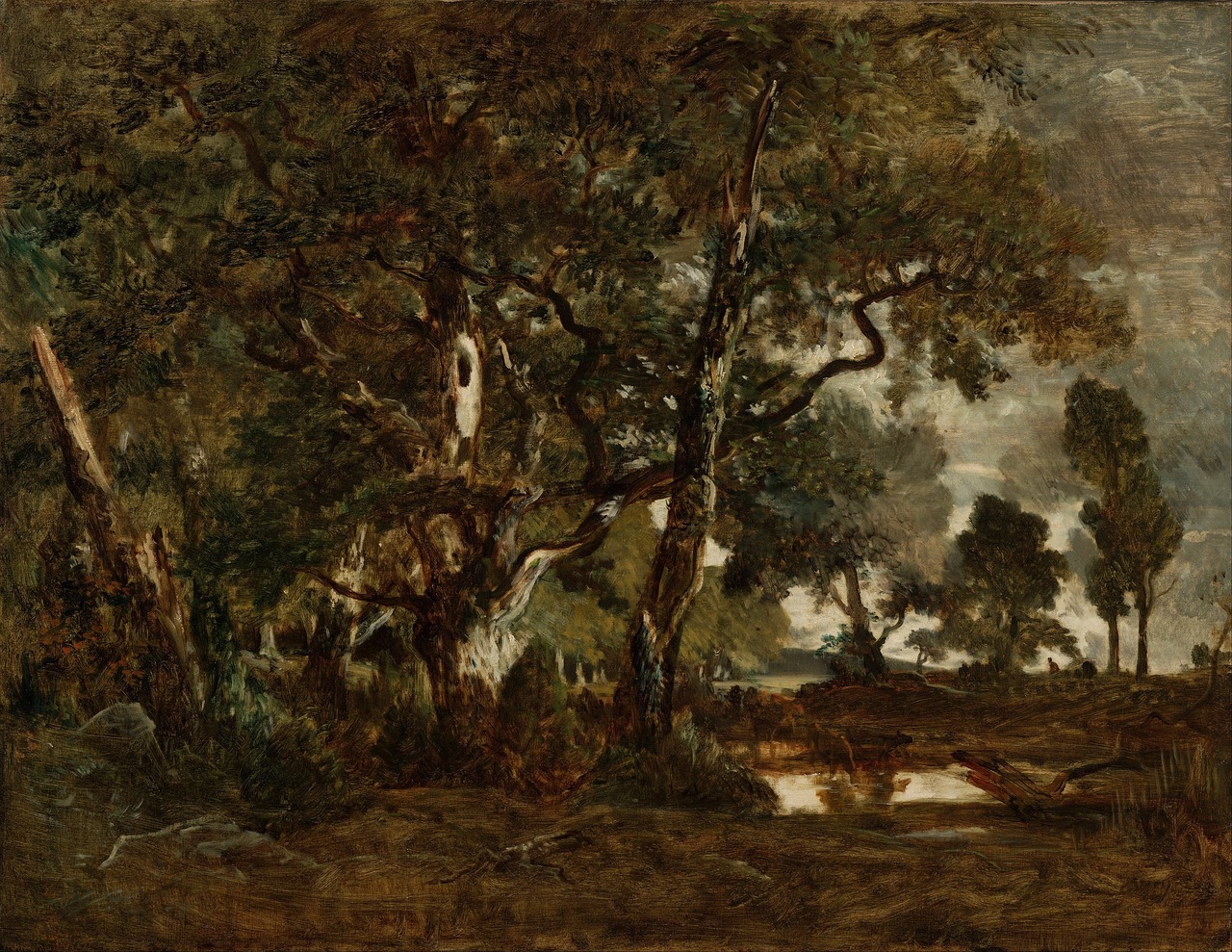
Historical Context of Rousseau's Ideas
To truly appreciate Jean-Jacques Rousseau's contributions to political philosophy, it's essential to understand the historical context in which he wrote. The 18th century, often referred to as the Age of Enlightenment, was a period of profound transformation in Europe, characterized by the emergence of new ideas about individual rights, governance, and the role of the state. During this time, thinkers began to challenge traditional authority, advocating for reason and empirical evidence over dogma and superstition.
Rousseau was particularly influenced by the social and political upheavals of his time, including the French Revolution and the growing discontent with monarchical rule. The Enlightenment's emphasis on reason and the questioning of established norms resonated deeply with Rousseau, who saw a society plagued by inequality and corruption. He believed that the existing social contract, which favored the wealthy and powerful, was fundamentally flawed and needed to be reimagined.
In his seminal work, The Social Contract, Rousseau argued that the relationship between the individual and the state should be based on mutual consent and the collective will of the people. This was a radical departure from the prevailing notions of governance, which often hinged on divine right or aristocratic privilege. Rousseau's ideas emerged as a response to the following societal issues:
- Inequality: The growing divide between the rich and the poor was becoming increasingly apparent, leading to social unrest.
- Governance: Traditional forms of government were being questioned, as people sought more democratic and participatory forms of rule.
- Enlightenment Influence: The works of other Enlightenment thinkers, like Locke and Hobbes, provided a backdrop for Rousseau’s own theories, prompting him to formulate his unique perspective.
Rousseau's philosophy also reflects the romanticism of the era, which emphasized emotion, nature, and the inherent goodness of humanity. He believed that civilization, while providing advancements in science and culture, had also corrupted the natural state of man, leading to moral decay. This tension between civilization and nature is a recurring theme in his writings, illustrating his desire to return to a more authentic, communal way of life.
In summary, Rousseau's ideas were not created in a vacuum; they were a direct response to the tumultuous historical landscape of the 18th century. His critique of social inequality and advocacy for a new social contract laid the groundwork for modern democratic thought, challenging individuals to reconsider their relationship with authority and the state.

Key Concepts of the Social Contract
Rousseau's Social Contract is a cornerstone of political philosophy that has shaped modern democratic ideals. At its core, it introduces several fundamental concepts that challenge traditional notions of governance and individual rights. One of the most significant ideas is the general will, which represents the collective desire of the people. Unlike individual interests, which can often conflict with one another, the general will seeks the common good. This concept urges us to consider: what does it mean to prioritize the collective over the individual? In essence, it prompts a reflection on how our personal desires can align with the greater needs of society.
Another key concept is popular sovereignty. Rousseau posits that legitimate political authority is derived from the consent of the governed. This principle is revolutionary because it shifts the power dynamic from rulers to the people, making citizens active participants in their governance rather than passive subjects. Imagine a ship where every crew member has a say in its course; this is the essence of popular sovereignty. It emphasizes that the true power lies within the community, and decisions should reflect the will of the majority while ensuring that minority voices are heard.
Furthermore, Rousseau's work highlights the intricate relationship between individual freedom and collective responsibility. He argues that freedom is not merely the absence of constraints but rather the ability to engage in the collective decision-making process. This perspective challenges the notion of freedom as isolation; instead, Rousseau suggests that true liberation comes from participating in a society that respects and values each individual's contributions. In this light, civic engagement becomes a vital aspect of personal freedom, fostering a sense of belonging and purpose within the community.
To better understand these concepts, let’s summarize them in the following table:
| Concept | Description |
|---|---|
| General Will | The collective desire of the populace that guides political decisions for the common good. |
| Popular Sovereignty | The principle that legitimate political authority arises from the consent of the governed. |
| Individual Freedom | True freedom is achieved through participation in collective decision-making, balancing rights with responsibilities. |
Rousseau's ideas are not just theoretical; they have practical implications for how we view democracy today. The emphasis on the general will and popular sovereignty challenges us to think critically about our political systems and the extent to which they reflect the voices of the people. Are we truly engaging in a democratic process, or are we merely following the dictates of a few? These questions remain relevant as we navigate the complexities of modern governance.
In conclusion, Rousseau's Social Contract presents a transformative vision of society where the interplay between individual and collective interests is essential. His concepts encourage us to rethink our roles as citizens and the responsibilities we hold towards one another. By embracing the principles of the general will and popular sovereignty, we can work towards a more equitable and just society that values both individual freedoms and the common good.
- What is the general will? The general will refers to the collective desires of the populace that should guide political decisions for the common good.
- How does popular sovereignty work? Popular sovereignty asserts that legitimate political authority comes from the consent of the governed, meaning that the people have the ultimate say in their governance.
- What is the difference between individual freedom and collective responsibility? Individual freedom is the ability to act without constraints, while collective responsibility emphasizes the importance of participating in societal decisions that affect everyone.
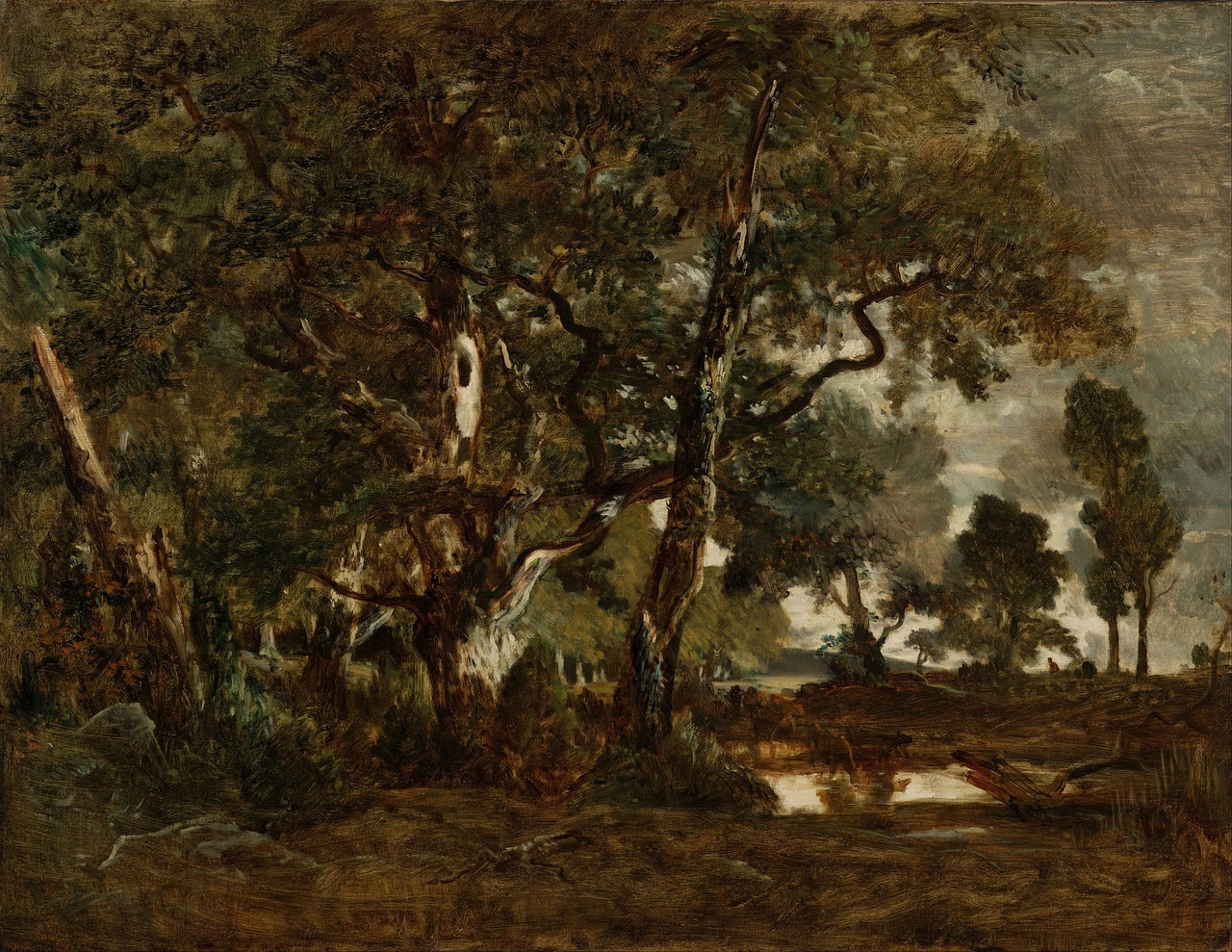
The General Will Explained
The concept of general will is a cornerstone of Rousseau's political philosophy, representing the collective desires and interests of the populace. Unlike individual will, which often reflects personal preferences and self-serving motives, the general will embodies what is best for the community as a whole. Rousseau believed that in a truly just society, the general will should guide political decisions, ensuring that the common good prevails over individual interests.
To understand the general will, it's essential to grasp its implications for governance and social cohesion. Rousseau argued that when individuals come together to form a society, they must set aside their personal desires and work towards a shared vision. This collective approach fosters a sense of unity and belonging, allowing citizens to participate actively in shaping their community. In this way, the general will is not merely a theoretical concept; it represents a practical framework for achieving social harmony.
One of the most intriguing aspects of the general will is its dynamism. It is not static; rather, it evolves as society changes. For instance, as new issues arise or societal values shift, the general will must adapt to reflect these transformations. This adaptability is crucial for maintaining a responsive and responsible government. The general will can be seen as a living entity, constantly influenced by the collective input of the citizens it represents.
However, the concept of the general will is not without its challenges. Critics often point out the potential for manipulation, where leaders might claim to act in the name of the general will while actually pursuing their own agendas. This raises important questions about representation and accountability in democratic systems. To mitigate these risks, Rousseau emphasized the need for active civic engagement, urging citizens to participate in discussions and decision-making processes actively.
In essence, the general will serves as a guiding principle for political authority. It suggests that legitimate governance arises not from the whims of a select few but from the collective agreement of the governed. This radical idea has profoundly influenced modern democratic thought, prompting us to consider how we can cultivate a political environment that genuinely reflects the will of the people.
- What is the general will? The general will is the collective desire of the populace that aims for the common good, distinguishing it from individual interests.
- How does the general will impact democracy? It suggests that true democracy should reflect the collective will of the people rather than the interests of a few.
- Can the general will be manipulated? Yes, critics argue that it can be misused by leaders to suppress minority opinions and justify authoritarian actions.
- Why is civic engagement important in Rousseau's philosophy? Active participation helps ensure that the general will genuinely represents the community's interests and prevents manipulation.
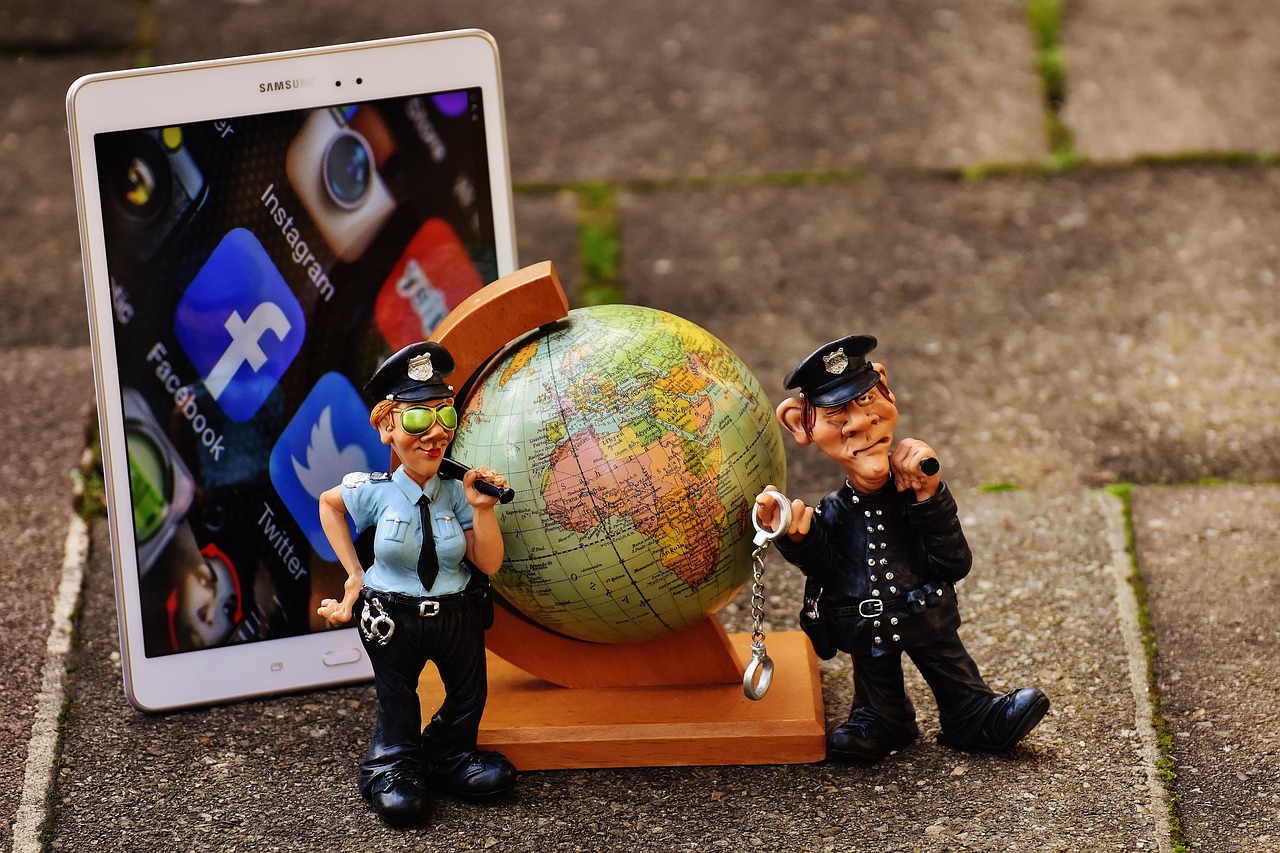
Distinguishing Individual Will from General Will
In the realm of political philosophy, Jean-Jacques Rousseau presents a compelling distinction between individual will and general will. This differentiation is crucial for understanding how personal desires can conflict with the collective needs of society. Individual will refers to the personal preferences and interests of each member within a community. It's that inner voice that whispers, "What do I want?" This can often lead to decisions that serve one's own interests, sometimes at the expense of the greater good.
On the other hand, the general will embodies the collective desires of the populace, aiming for the common good. It's not merely a sum of individual wills; rather, it represents a higher moral authority that transcends personal interests. Rousseau argues that the general will must guide political decisions, ensuring that they reflect the needs and aspirations of the community as a whole. This concept raises an important question: how do we balance these two types of will in a functioning society?
To illustrate this distinction, consider the following analogy: imagine a choir. Each singer (representing individual will) has their own voice and preferences on how to sing a particular note. However, the choir (representing the general will) must harmonize, blending those individual voices into a cohesive sound that resonates with the audience. If one singer insists on singing their part without regard for the others, the result is chaos rather than harmony. Similarly, in a society, if individuals prioritize their own desires over the collective needs, the social fabric can become strained.
Rousseau emphasizes that true freedom and fulfillment come from aligning individual will with the general will. This alignment fosters a sense of belonging and purpose, as individuals contribute to the collective good while also finding personal satisfaction. However, achieving this balance is not always straightforward. The challenge lies in determining what constitutes the general will, as it can be subject to interpretation and manipulation.
In practical terms, this distinction has profound implications for governance and democracy. A government that prioritizes individual will may cater to special interests, leading to inequality and division. In contrast, a government that embodies the general will seeks to reflect the collective aspirations of its citizens, promoting unity and social welfare. Yet, this raises another pressing question: how can we ensure that the general will remains true to the collective good without suppressing minority voices?
Ultimately, Rousseau's insights compel us to reflect on our roles within society. Are we merely pursuing our individual desires, or are we actively engaging in the collective decision-making process? The distinction between individual will and general will isn't just an academic exercise; it's a call to action for each of us to participate in shaping a society that values both personal freedom and the common good.
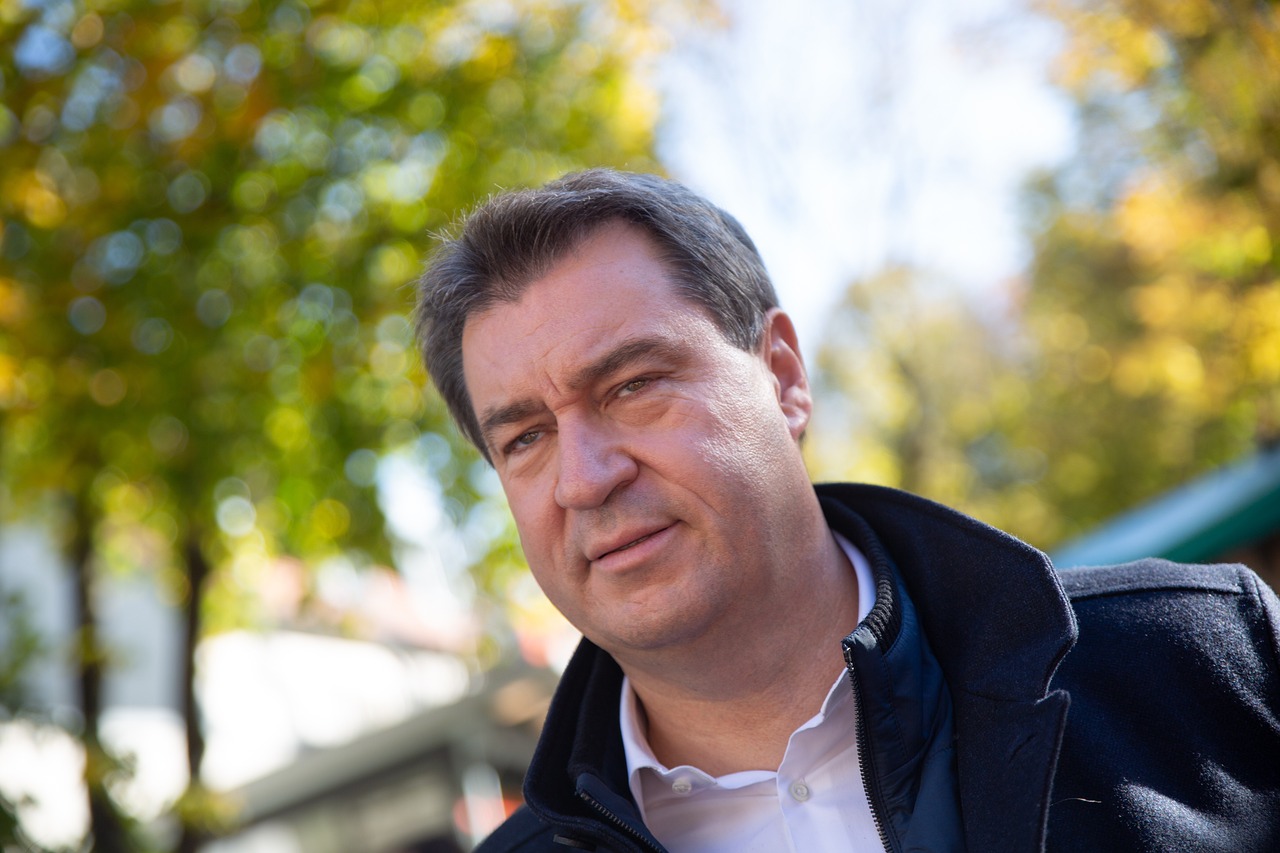
Implications for Democracy
Rousseau's notion of the general will profoundly reshapes our understanding of democracy. At its core, the general will embodies the collective interests and desires of the populace, suggesting that political decisions should not merely reflect the whims of a select few but should instead resonate with the broader community's aspirations. This idea challenges the traditional view of democracy, which often prioritizes individual interests over the common good.
One of the most significant implications of Rousseau's philosophy is the idea that true democracy must be participatory. In a system where the general will is recognized, every citizen is not just a passive observer but an active participant in the decision-making process. This participatory approach encourages individuals to engage with their community, fostering a sense of belonging and responsibility. It raises the question: how can we ensure that every voice is heard in a democracy? The answer lies in creating systems that prioritize inclusivity and engagement.
Moreover, Rousseau's emphasis on the general will introduces the necessity of civic virtue. Citizens must be informed, engaged, and willing to put the collective interest above their personal desires. This creates a delicate balance between individual rights and the responsibilities that come with living in a society. It prompts us to consider how we can cultivate a culture that values civic engagement and encourages individuals to contribute positively to their communities.
However, the implementation of Rousseau's ideas is not without challenges. Critics argue that the concept of the general will can lead to potential pitfalls, such as the suppression of minority opinions. In a democracy that claims to represent the general will, there's a risk of majoritarian tyranny, where the majority's desires overshadow and silence minority voices. This highlights the importance of safeguarding individual rights and ensuring that all perspectives are considered in the democratic process.
To address these challenges, modern democratic systems must strive for a balance between the general will and the protection of individual rights. This can be achieved through mechanisms that promote dialogue, debate, and compromise. For instance, establishing forums for public discourse or utilizing digital platforms for citizen engagement can help bridge the gap between majority and minority opinions.
In summary, Rousseau's insights into the general will have profound implications for democracy. They challenge us to think critically about how we define participation, the role of civic virtue, and the necessity of protecting minority rights. As we navigate the complexities of modern governance, Rousseau's philosophy serves as a reminder that democracy is not just about casting votes but about fostering a community where every individual's voice contributes to the collective narrative.
- What is the general will? The general will refers to the collective desires and interests of the populace, guiding political decisions for the common good.
- How does Rousseau's philosophy impact modern democracy? It emphasizes the need for participatory governance and the importance of civic engagement while balancing individual rights with collective responsibilities.
- What are the risks associated with the general will? Critics argue that it can lead to the suppression of minority opinions, resulting in majoritarian tyranny.
- How can we ensure inclusivity in democratic processes? By promoting dialogue, public discourse, and utilizing digital platforms for citizen engagement.
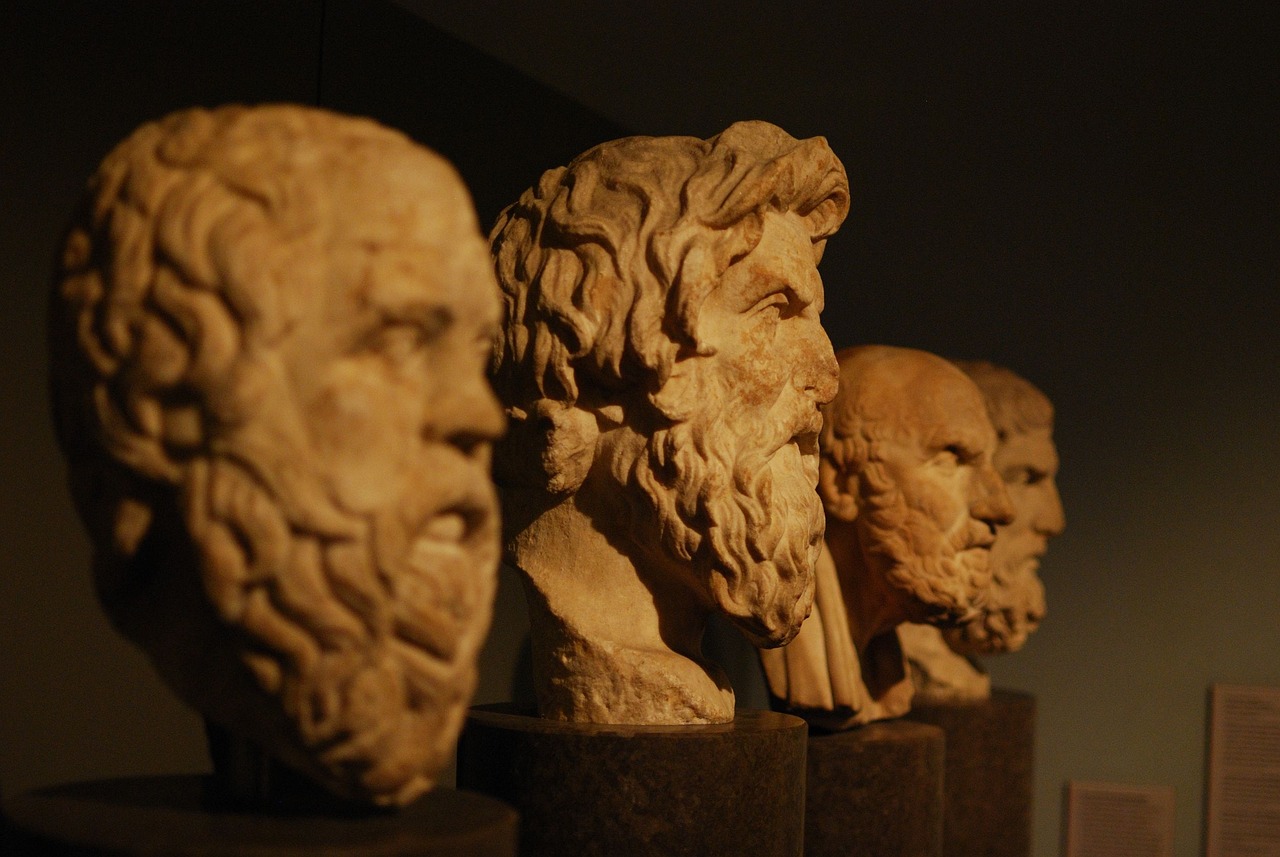
Popular Sovereignty and Authority
Rousseau's concept of popular sovereignty is a cornerstone of his political philosophy, asserting that legitimate political authority is derived from the consent of the governed. This idea revolutionizes how we understand power dynamics within a society. Essentially, Rousseau posits that the people are the ultimate source of authority, and any government must reflect the general will of the populace. This is not merely a theoretical notion; it demands active participation from citizens in the decision-making processes that affect their lives. Imagine a ship where the captain is chosen by the crew, and the crew has the power to steer the ship. This metaphor illustrates how Rousseau envisions a political system where authority is not imposed from above but is a reflection of the collective desires and needs of the people.
To further comprehend the implications of popular sovereignty, we can break it down into several key principles:
- Consent of the Governed: The government's legitimacy hinges on the approval of its citizens. Without their consent, any authority is unjust.
- Collective Decision-Making: Decisions should be made with the input of the populace, ensuring that the general will is represented.
- Accountability: Leaders must be accountable to the people, who have the power to replace them if they fail to act in the community's best interest.
This framework of popular sovereignty challenges traditional notions of authority, where rulers often operate with unchecked power. Rousseau's perspective invites us to question the status quo and consider who truly holds power in our societies. Are our leaders genuinely representative of our collective will, or do they serve their interests? This critical examination of authority is essential for fostering a healthy democracy where citizens are engaged and empowered.
Furthermore, Rousseau's ideas on popular sovereignty have profound implications for modern governance. In today's world, where the voices of the marginalized can often be drowned out, Rousseau's insistence on the importance of the general will serves as a reminder that democracy is not just about majority rule. It is about finding a balance that respects individual rights while promoting the common good. This balance is crucial in preventing the tyranny of the majority, where the needs of minority groups are overlooked.
In conclusion, Rousseau's concept of popular sovereignty reshapes our understanding of authority and governance. By emphasizing the necessity of consent, collective decision-making, and accountability, he lays the groundwork for a political system that is both fair and just. As we navigate the complexities of modern democracy, Rousseau's insights remain relevant, urging us to ensure that our political systems truly reflect the will of the people.
Here are some common questions related to Rousseau's ideas on popular sovereignty and authority:
- What is popular sovereignty? Popular sovereignty is the principle that the authority of a government is created and sustained by the consent of its people, through their elected representatives.
- How does Rousseau's idea of popular sovereignty differ from traditional views of authority? Traditional views often place authority in the hands of a monarch or ruling class, while Rousseau argues that true authority must originate from the people themselves.
- Why is accountability important in a system of popular sovereignty? Accountability ensures that leaders act in the best interest of the people and can be held responsible for their actions, fostering trust and engagement in the political process.

Rousseau's View on Freedom
When we dive into Rousseau's perspective on freedom, we uncover a rich tapestry of thought that challenges conventional notions. For Rousseau, freedom isn't merely about being left alone or having the liberty to do as one pleases; it’s about being part of a collective decision-making process that shapes our lives and society. Think of it this way: true freedom is like being in a band. Each musician plays their part, contributing to a harmonious whole, rather than just playing solo and drowning out everyone else. This collective engagement is what Rousseau believed to be the essence of freedom.
Rousseau famously distinguishes between two types of freedom: negative freedom and positive freedom. Negative freedom refers to the absence of external constraints, where individuals are free to act without interference. Imagine a bird in a cage; if the door is open, the bird experiences negative freedom. However, Rousseau argues that this type of freedom is inadequate for true human fulfillment. Instead, he champions positive freedom, which is the ability to actively participate in shaping one's own life and the society around them. In this sense, freedom is not just about doing what you want, but about having a voice in the decisions that affect you.
To illustrate this further, consider the role of civil society in Rousseau's framework. Civil society is not just a backdrop for individual actions; it’s the arena where individuals come together to forge a collective identity. In this space, people engage in discussions, debates, and decisions that reflect their shared values and goals. This communal engagement fosters a sense of belonging and responsibility, emphasizing that individual rights must be balanced with societal obligations. After all, what good is freedom if it leads to chaos or the marginalization of others?
Rousseau's view of freedom also highlights the importance of civic engagement. Participating in civic life—whether through voting, community service, or public discourse—is essential for realizing positive freedom. It’s like planting a garden; the more you nurture it by contributing your time and effort, the more it flourishes. In contrast, neglecting civic duties can lead to a disconnection from the community, ultimately undermining the very freedom individuals seek.
In summary, Rousseau’s conception of freedom is profound and multifaceted. It emphasizes that true freedom is not just about personal liberty but is deeply intertwined with our responsibilities to one another. By participating in the collective decision-making process, individuals can achieve a richer, more meaningful existence. As we navigate the complexities of modern society, Rousseau's insights into freedom remind us that our individual liberties must harmonize with the collective good, ensuring that we all thrive together.
- What is the difference between negative and positive freedom according to Rousseau?
Negative freedom is the absence of constraints, while positive freedom is the ability to participate in shaping one's life and society.
- How does Rousseau view the role of civil society?
Civil society is crucial for forming a collective identity and pursuing the common good, allowing individuals to engage in meaningful civic life.
- Why is civic engagement important in Rousseau's philosophy?
Civic engagement fosters a sense of belonging and responsibility, ensuring that individual rights are balanced with societal obligations.

Negative vs. Positive Freedom
In the realm of political philosophy, the distinction between negative freedom and positive freedom is pivotal, especially within the context of Rousseau's thought. To put it simply, negative freedom refers to the absence of constraints or interference from others, allowing individuals to act as they choose without external restrictions. Imagine standing on a vast, open field, free to roam wherever you desire—that's the essence of negative freedom. However, while this form of freedom is essential, it's not the only way to understand what it means to be truly free.
On the other hand, positive freedom emphasizes the ability to actively participate in shaping one's own life and society. It’s not just about being left alone; it’s about having the power and opportunity to engage in the decision-making processes that affect our lives. Picture a community gathering where everyone contributes to discussions and decisions—this is where positive freedom thrives. Rousseau believed that true freedom is realized through active participation in the collective decision-making process, where individuals come together to pursue the common good.
In Rousseau's view, these two forms of freedom are interconnected. Negative freedom can lead to isolation, while positive freedom fosters a sense of community and shared responsibility. To illustrate this relationship, consider the following table:
| Feature | Negative Freedom | Positive Freedom |
|---|---|---|
| Definition | Absence of interference | Participation in decision-making |
| Focus | Individual autonomy | Collective empowerment |
| Outcome | Freedom from constraints | Freedom to shape one’s life |
This table illustrates how negative and positive freedoms serve different yet complementary roles in our understanding of liberty. While negative freedom is about being unencumbered, positive freedom is about being empowered. Rousseau argued that without positive freedom, negative freedom can lead to a hollow existence, devoid of meaning and connection to others.
Moreover, Rousseau's emphasis on civic engagement highlights the importance of finding a balance between these two freedoms. A society that promotes only negative freedom may inadvertently foster selfishness and disconnection, while one that prioritizes positive freedom without regard for individual rights can slip into authoritarianism. This delicate balance is crucial for a healthy democracy, where individuals not only enjoy the freedom to act but also the freedom to engage, collaborate, and contribute to the collective well-being.
In conclusion, understanding the interplay between negative and positive freedom provides a deeper insight into Rousseau's political philosophy. It encourages us to reflect on our own roles within society and to consider how we might cultivate a more engaged and participatory community, ultimately striving for a form of freedom that enriches both the individual and the collective.
- What is the main difference between negative and positive freedom? Negative freedom is about the absence of constraints, while positive freedom is about the ability to participate in shaping one's own life and society.
- Why is Rousseau's concept of positive freedom important? It emphasizes the need for civic engagement and collective responsibility, which are essential for a thriving democracy.
- How can we achieve a balance between negative and positive freedom? By fostering environments where individual rights are respected while also encouraging active participation in community decision-making processes.
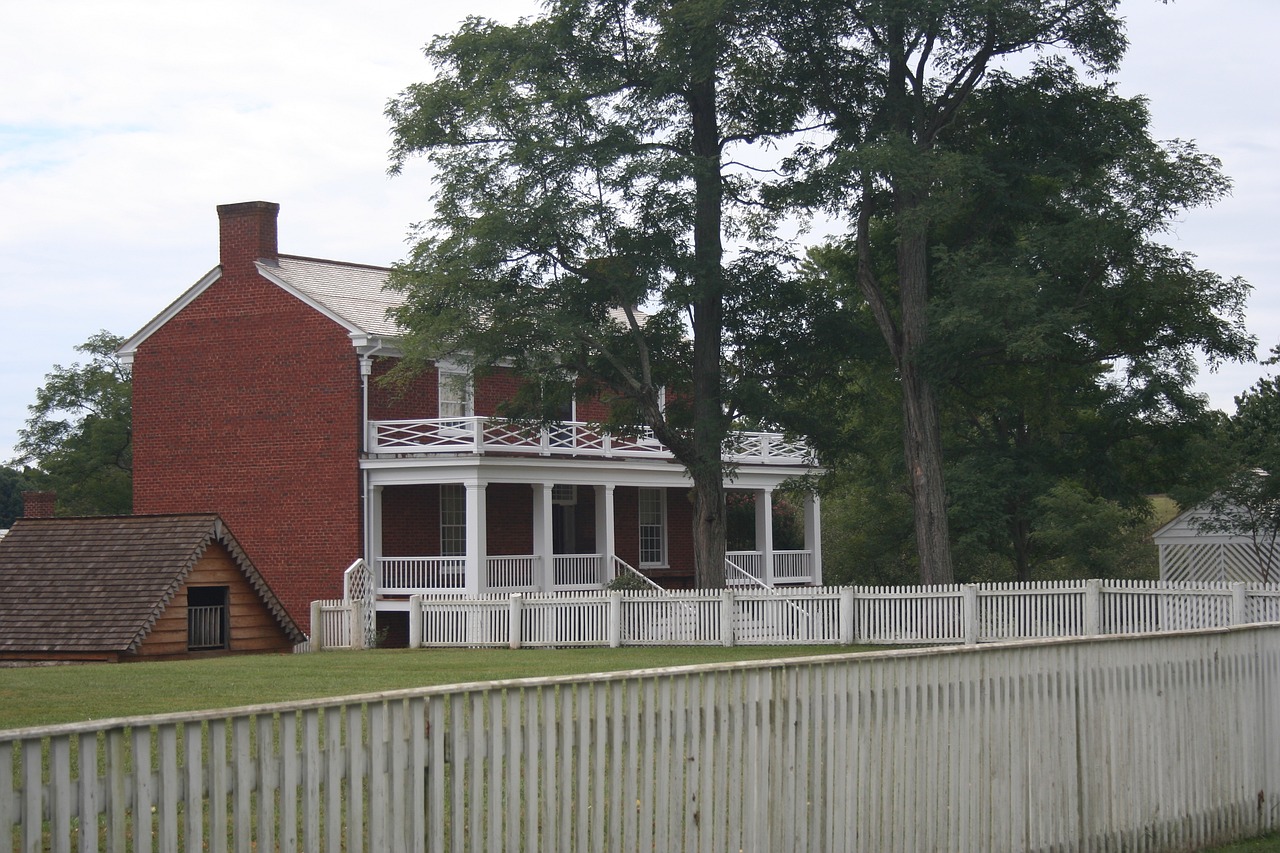
The Role of Civil Society
In Rousseau's political philosophy, civil society emerges as a vital component that bridges the gap between the individual and the state. It serves as the platform where individuals come together, fostering a sense of community and shared identity. This collective space is not merely a backdrop for political activity; rather, it is the very foundation upon which the principles of freedom, equality, and fraternity stand. But what exactly does civil society entail, and why is it so crucial to Rousseau's vision?
To understand the role of civil society, we must first recognize that it is a space characterized by voluntary associations and interactions among individuals. Rousseau believed that in order to achieve the common good, people must engage with one another, transcending their personal interests. This engagement allows for the emergence of a collective will that reflects the needs and desires of the community as a whole. In essence, civil society is where the individual contributes to and shapes the larger social fabric.
Moreover, civil society acts as a counterbalance to the state. It is a realm where citizens can express their opinions, advocate for their rights, and hold those in power accountable. This dynamic interaction between civil society and the state is essential for nurturing a healthy democracy. Without an active civil society, the risk of tyranny and oppression increases, as individuals may become mere subjects of an authoritarian regime. Thus, civil society not only promotes civic engagement but also safeguards individual freedoms.
Rousseau's insights into civil society are particularly relevant in today's context. As we navigate the complexities of modern governance and social interaction, the importance of a vibrant civil society cannot be overstated. It serves as a platform for:
- Advocacy: Civil society organizations often champion social justice, environmental issues, and human rights, ensuring that diverse voices are heard.
- Community Building: Through various groups and associations, individuals can forge connections that strengthen their communities.
- Political Participation: Civil society encourages citizens to engage in the political process, whether through voting, campaigning, or activism.
In conclusion, civil society holds a pivotal role in Rousseau's vision of a just and equitable society. It is the arena where individuals unite to pursue the common good while maintaining their distinct identities. By fostering collaboration, promoting accountability, and encouraging civic engagement, civil society not only enriches democracy but also empowers individuals to shape their own destinies. As we reflect on Rousseau's ideas, let us recognize the enduring significance of civil society in our quest for a more just world.

Critiques of Rousseau's Philosophy
While Rousseau's ideas have significantly shaped political thought and sparked countless discussions, they are not without their critics. The core of the critique often revolves around the practicality of his concepts, particularly the idea of the general will, which some argue can lead to authoritarianism. Critics contend that Rousseau's vision of a collective good, while noble in theory, can easily be manipulated in practice. This raises questions about who gets to define what the general will is and whose interests are being prioritized.
One of the primary concerns is the potential for majoritarian tyranny. In a democratic system, the general will is meant to represent the collective desires of the populace. However, if the majority's will is considered the only valid expression of the general will, it can result in the marginalization or outright suppression of minority opinions. This is particularly troubling in diverse societies where differing perspectives are essential for a healthy political discourse.
Moreover, some critics argue that Rousseau's emphasis on the general will may inadvertently encourage a form of conformity among citizens. Instead of fostering a vibrant marketplace of ideas, it could lead individuals to suppress their own beliefs and desires in favor of what is perceived as the collective consensus. This raises a critical question: can true individual freedom exist in a society where the general will reigns supreme?
Additionally, the practical implementation of Rousseau's ideas has been challenged. Critics argue that translating the abstract notion of the general will into concrete policies is fraught with difficulties. Who decides what the general will entails? How do we ensure that it reflects the needs and desires of all citizens, not just those in power? These questions highlight the complexities of governance in a modern context, where individual rights and collective responsibilities must be balanced.
Despite these critiques, Rousseau's philosophy remains relevant today, prompting ongoing debates about democracy, social justice, and the role of the individual within society. His ideas encourage us to reflect critically on the nature of freedom and the responsibilities that come with it. As we navigate the complexities of modern governance, Rousseau's work serves as a reminder of the delicate balance between individual autonomy and the common good.
- What is the general will? - The general will is a central concept in Rousseau's philosophy that represents the collective desires of the populace aimed at the common good.
- How does Rousseau's philosophy relate to democracy? - Rousseau argues that legitimate political authority arises from the consent of the governed, establishing the principle of popular sovereignty essential for modern democracies.
- What are the critiques of Rousseau's ideas? - Critics point to the potential for majoritarian tyranny and the challenges of implementing the general will in diverse societies.
- Is Rousseau's philosophy still relevant today? - Yes, his ideas continue to resonate in contemporary discussions about democracy, social justice, and the balance between individual rights and collective responsibilities.
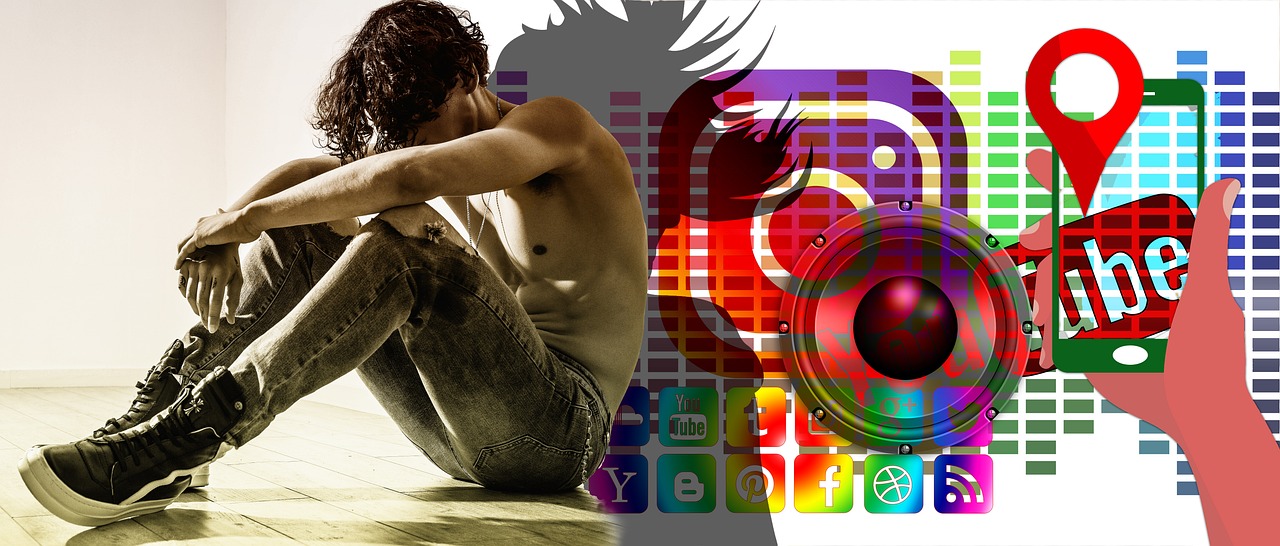
Challenges to the General Will
The concept of the general will, while foundational to Rousseau's political philosophy, is not without its challenges and criticisms. One of the primary concerns revolves around the potential for this idea to be manipulated by those in power. In theory, the general will represents the collective interests of the populace, but in practice, it can be distorted to serve the agendas of a select few. This raises a crucial question: how can we ensure that the general will truly reflects the desires and needs of the entire community?
Critics argue that the general will can lead to what is known as majoritarian tyranny. This occurs when the majority's preferences overshadow and suppress the rights and opinions of minority groups. In a democratic system, the fear is that the loudest voices may dominate the conversation, leading to decisions that do not account for the diverse perspectives within society. For instance, when a government claims to act on behalf of the general will, it may inadvertently silence dissenting voices, creating an environment where only the majority's interests are prioritized.
Moreover, the ambiguity surrounding what constitutes the general will poses another significant challenge. Is it the will of the majority, or is it a deeper, more profound consensus that transcends individual preferences? This question is particularly pertinent in today's multicultural societies, where differing values and beliefs can complicate the notion of a unified general will. As such, the interpretation of the general will can vary greatly, leading to conflicts and misunderstandings among different social groups.
Additionally, the implementation of the general will in political decision-making raises practical concerns. How do we accurately gauge the collective will of the people? Surveys and polls can provide insights, but they are often limited and may not capture the full spectrum of public opinion. Furthermore, the reliance on representative democracy can create a disconnect between elected officials and their constituents, as representatives may prioritize their interests over the true general will of the people they represent.
To illustrate these challenges, consider the following table that summarizes the key critiques of the general will:
| Challenge | Description |
|---|---|
| Manipulation by Power | The risk that those in authority may distort the general will to serve their own interests. |
| Majoritarian Tyranny | The potential for the majority to suppress minority opinions and rights. |
| Ambiguity of the Concept | The difficulty in defining and identifying what truly constitutes the general will. |
| Practical Implementation | The challenges in accurately gauging the collective will of the populace. |
In summary, while Rousseau's concept of the general will is a powerful tool for understanding collective governance, it is essential to approach it with caution. The potential for manipulation, the risks of majoritarianism, and the inherent ambiguities surrounding its definition necessitate ongoing dialogue and critical examination. As we navigate the complexities of modern democracy, it is crucial to ensure that all voices are heard and that the general will genuinely reflects the diverse fabric of society.
- What is the general will according to Rousseau? The general will refers to the collective interests and desires of the populace that should guide political decisions for the common good.
- How can the general will be manipulated? Those in power may distort the concept to serve their interests, leading to decisions that do not reflect the true desires of the community.
- What is majoritarian tyranny? It is the suppression of minority opinions and rights by the majority in a democratic system.
- Why is the general will important? It serves as a foundation for democratic governance, emphasizing the importance of collective decision-making in achieving the common good.

Modern Interpretations and Relevance
Rousseau's political philosophy, particularly his concept of the Social Contract, continues to resonate in today's political discourse. As we navigate the complexities of modern governance, the core ideas of Rousseau prompt us to reflect on the nature of democracy, individual rights, and the collective good. In a world that often feels fragmented and polarized, Rousseau's vision of a society united by a common will is more relevant than ever. His thoughts challenge us to consider how we can foster a sense of community while respecting individual freedoms.
One of the most significant modern interpretations of Rousseau's work revolves around the balance between individual rights and collective responsibilities. In our current global landscape, where issues like climate change, social justice, and economic inequality loom large, Rousseau's insistence on civic engagement and participation in decision-making processes serves as a guiding principle. He argued that true freedom is not merely the absence of interference but rather the active participation in shaping one's society. This notion resonates with contemporary movements advocating for grassroots democracy and community involvement.
Furthermore, the idea of the general will has sparked extensive debate among scholars and political theorists. Critics often question how this concept can be applied without risking the suppression of minority voices. In modern democracies, where diversity of thought is paramount, the challenge lies in ensuring that the general will reflects the true desires of the populace rather than the whims of the majority. This tension between majority rule and minority rights is a critical issue in contemporary politics, echoing Rousseau's warnings about the potential for majoritarian tyranny.
In addition, Rousseau's philosophy has found new life in discussions surrounding social justice and equity. The idea that a society should prioritize the common good over individual gain resonates strongly with current movements aimed at addressing systemic inequalities. Activists and thinkers alike draw upon Rousseau's insights to advocate for policies that promote inclusivity and ensure that all voices are heard in the political arena. This ongoing dialogue reflects the adaptability of Rousseau's ideas to various contexts and challenges, reinforcing their enduring relevance.
Ultimately, Rousseau's work invites us to engage in critical self-reflection about our roles within society. It encourages a dialogue about how we can create systems that not only uphold individual freedoms but also foster a sense of belonging and mutual responsibility. As we grapple with the complexities of modern governance, Rousseau's insights may provide a roadmap for navigating the intricate balance between the individual and the collective, urging us to strive for a society that truly reflects the will of its people.
- What is the main idea of Rousseau's Social Contract? Rousseau's Social Contract posits that legitimate political authority arises from the consent of the governed, emphasizing the importance of the general will in guiding political decisions for the common good.
- How does Rousseau define freedom? Rousseau distinguishes between negative freedom, which is the absence of constraints, and positive freedom, which is the ability to participate in shaping one's own life and society.
- What are the critiques of Rousseau's philosophy? Critics argue that Rousseau's concept of the general will can lead to the suppression of minority opinions and that his ideas may be impractical or susceptible to authoritarian interpretations.
- How are Rousseau's ideas relevant today? Rousseau's thoughts on democracy, social justice, and the balance between individual rights and collective responsibilities continue to inform contemporary discussions and movements advocating for a more equitable society.
Frequently Asked Questions
- What is the main idea behind Rousseau's Social Contract?
The core idea of Rousseau's Social Contract is that individuals come together to form a collective society, agreeing to follow the general will for the common good. This agreement allows for a balance between individual freedom and the needs of the community.
- How does Rousseau define the general will?
Rousseau defines the general will as the collective desires and interests of the populace, which should guide political decisions. It's not just the sum of individual preferences, but rather what is best for the community as a whole, promoting the common good.
- What is the difference between individual will and general will?
Individual will refers to personal interests and desires, which might not align with the greater good. In contrast, general will is focused on the common interests of the society, ensuring that decisions benefit everyone rather than just a few.
- What does popular sovereignty mean in Rousseau's philosophy?
Popular sovereignty is the principle that legitimate political authority comes from the consent of the governed. Rousseau argues that for a government to be valid, it must be based on the collective agreement of the people, reflecting their will and needs.
- How does Rousseau view freedom?
Rousseau sees true freedom as participation in the collective decision-making process. He distinguishes between negative freedom, which is merely the absence of constraints, and positive freedom, which is the ability to shape one’s life and society through active engagement.
- What role does civil society play in Rousseau's framework?
Civil society is essential in Rousseau's thought as it serves as the platform where individuals unite to form a collective identity. It’s within this space that people can pursue the common good and engage in civic duties, fostering a sense of community.
- What are some critiques of Rousseau's philosophy?
Critiques of Rousseau's ideas often focus on their practicality and the potential for authoritarianism. Some argue that the concept of the general will can lead to the suppression of minority opinions, risking majoritarian tyranny in democratic systems.
- How are Rousseau's ideas relevant today?
Rousseau's concepts continue to spark discussions around democracy, social justice, and the balance between individual rights and collective responsibilities. His ideas prompt ongoing debates about how societies can navigate these complex issues in contemporary contexts.



















